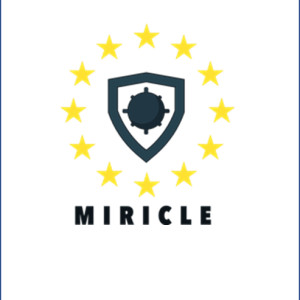 \
&
Contact us
\
&
Contact us
 \
&
Contact us
\
&
Contact us
Starts in 1 week from now
LocationOnline
ProgrammesThe ERC Plus Grants are a new funding scheme to support outstanding principal investigators with bold ideas and a vision for transformative research that goes beyond the scope of existing ERC programmes. In this webinar on the new ERC Plus Grants, ERC President Maria Leptin and Philippe Cupers, Head of the Scientific Management Department, will outline the scope, objectives, eligibility and evaluation process of this new funding initiative. They will also explain how ERC Plus Grants sit within the wider ERC funding landscape and what applicants should bear in mind when preparing a proposal. Participants will be able to ask questions and engage directly with the speakers. The session will be moderated by Martin Penny, Head of Communication at the ERC.
The link to the webinar is available in the announcement on the ERC website. All information on that webpage and in the webinar is without prejudice to the European Commission’s decision on the amendment of the ERC Work Programme 2026.
We offer news and event updates, covering all domains and topics of Horizon Europe, Digital Europe & EDF (and occasionally, for ongoing projects, Horizon 2020).
Stay informed about what matters to you.
By signing up, you can opt in for e-mail notifications and get access to
a personalised dashboard that groups all news updates and event announcements in your domain(s).
Only for stakeholders located in Flanders
Security Digital, Industry & Space Digital Europe Cybersecurity Defence

The Miricle project, ‘Mine Risk Clearance for Europe’, obtained funding under the European Defence Industrial Development programme call ‘Underwater control contributing to resilience at sea’. The main objective of the project was to achieve a European and sovereign capacity in future mine warfare and create a path for the next generation ‘made in Europe’ countermeasure solutions. In order to realise this objective, Miricle addressed various stages: studies, design, prototyping and testing. These stages inter alia included the successful testing of an XL Unmanned Underwater Vehicle, a protototyped mine disposal system and multiple innovative systems to detect buried mines. Flanders Marine Institute (VLIZ), was one of the five Belgian partners in the consortium. Within the project, VLIZ was able to forward its research on the acoustic imaging of the seabed to spatially map and visualize buried structures and objects - in this case buried mines - in the highest possible detail. VLIZ also led the work on ‘Port and Offshore Testing’, building on the expertise of the institute in the field of marine operations and technology.